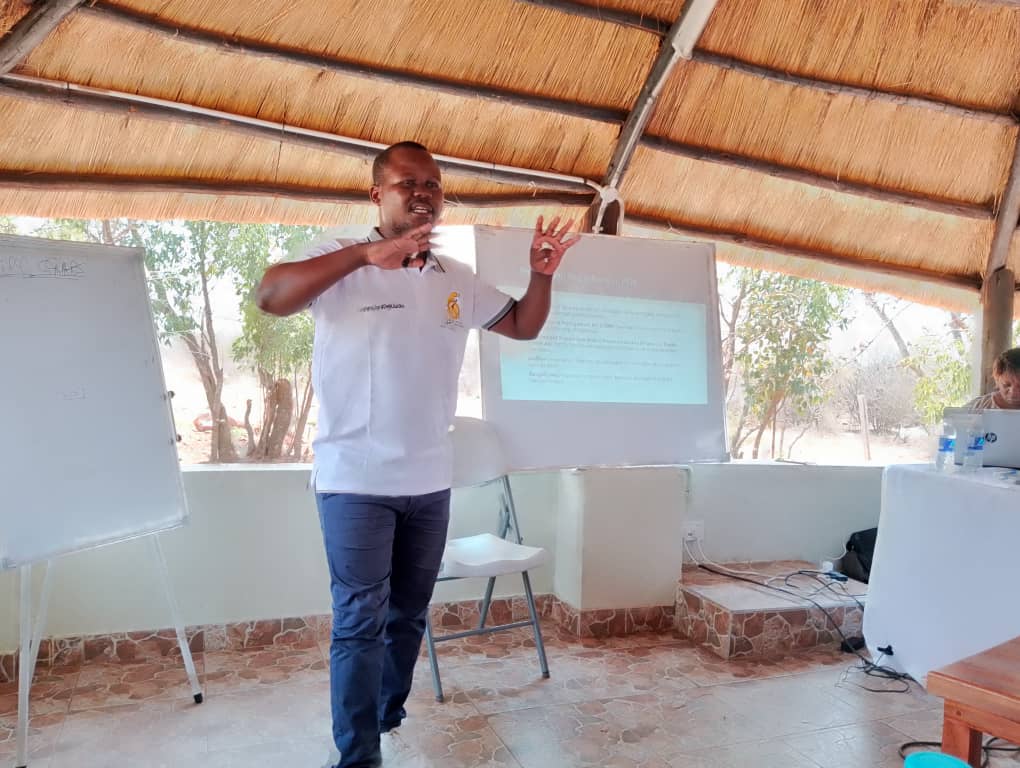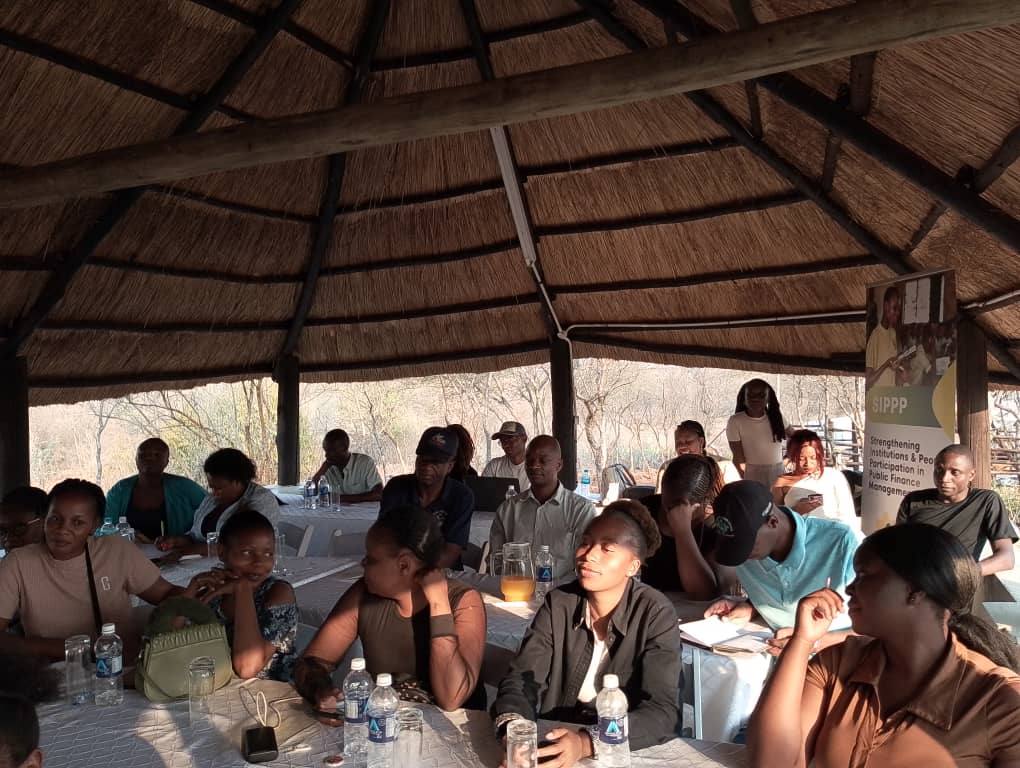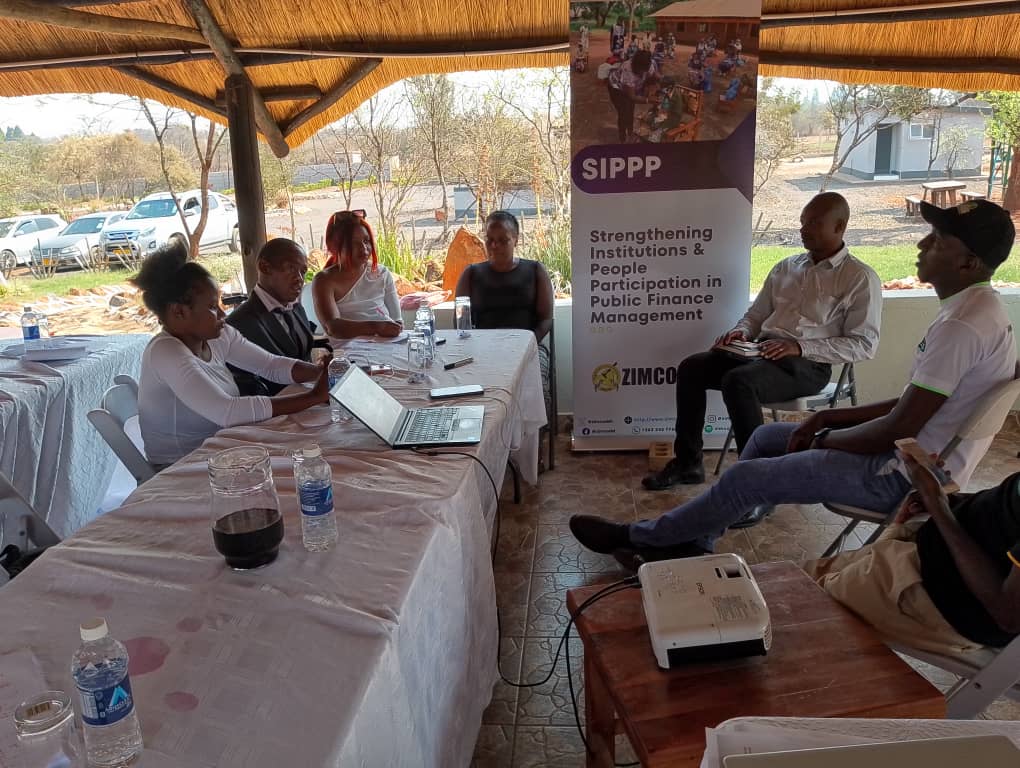ZIMCODD, GRRA Collaborate in CSOs Budget Making Literacy
By Delicious Mathuthu
Gweru – It’s budget season and the Zimbabwe Coalition on Debt and Development (ZIMCODD) in collaboration with Gweru Residents and Ratepayers Association (GRRA) has sensitized key Community Based Organisations (CBOs) on the budget-making process.
Working under the Strengthening Institutions and People Participation in Public Finance (SIPPP) project, mainly focusing on education and health sectors, Gweru CBO representatives participating discussed various topics in the budget life cycle, including elements of Public Finance Management (PFM).
Discussed topics during the sensitisation meeting in Gweru include, but not limited to, the public finance management legal framework, existing gaps in the PFM system, stages in the budget cycle, budget monitoring and expenditure tracking, budget analysis for advocacy, demerits of poor public finance management and analyzing policies.
Also discussed were budget performance audits and identification of 2025 budget key priority areas with a focus on the needs of Gweru residents.
Key priorities for the 2025 budget identified include the need to improve water supply in the city by securing enough pumping equipment, securing spares to fix pipe bursts when pressure increases, an additional dam for water supply, drafting a climate conscious budget in case of back-to-back droughts, constructing an additional maternal clinic in Mkoba, reviving the Mkoba South clinic maternal ward, securing enough maternal utilities for all maternal wards in council clinics, relocating the Gweru main dump site, as well as reviving and revamping recreational facilities for youths.
Construction of new schools to avert overcrowding and hot sitting, especially primary schools, establishing a new fire station in Mkoba for faster reaction time in cases of fire, adoption and completion of the Mkoba 6 Community Development Fund library, revamping of tower lights, reviving the Municipal offices elevator for easy access to offices for people with disabilities and capacitating the disability desk, were also identified as priority areas.
Economic Analyst, Zvikomborero Sibanda elaborated on the budget cycle, explaining how it works from budget formulation, approval process to evaluation.
He emphasized that the budget-making process at local authority level should pass through ten basic stages.
He said it should begin with the formulation of policies from central government as a guideline towards the national vision, typically occurring around June.
This is followed by priority areas identification by different council departments and council committees, creation of mini-draft budgets guided by the finance department, and consolidation of the mini-draft budgets.
Next, the consolidated draft budget is submitted to relevant departments for inspection. Outreach or consultation meetings with residents, business community, civil society organizations, people with disabilities, youths, women and other key populations then follow, usually between July and August.
After residents’ input, a final stakeholder-driven draft budget is prepared, budget meetings conducted by the Finance Committee Chairperson with all council departments for approval then follow, around October or November.
The final draft budget is then published through media for stakeholder objections within 30 days, and sent to the relevant Ministry for approval around December.
“Around December the budget is taken to the Ministry of Local Government for Ministerial approval. Remember the Minister would have issued guidelines which are based on the national development priorities.
“So if the Minister sees that the proposed budget is deviating from issued guidelines he can veto it, it means it goes back like it happened with Harare in the 2024 budget,” Sibanda said.
A research paper by Midlands State University on Zimbabwean councils and budget making, several challenges were identified as hindrance adherence to statutory budget-making timelines adherence leading to rushed processes leaving residents usually aggrieved and dissatisfied with the final product.
These hindrances include local authorities struggling with limited financial resources, insufficient revenues to finance the process, non-alignment of central government and local authority policies, limited citizen participation, inadequate capacity and expertise as well as external factors such as economic instability and natural disasters.
On limited citizen participation, Sibanda said CBOs play a key role in capacitating and ensuring citizens own such processes so as to improve service delivery and accountability.
“It is essential for CBOs to understand how central government manages public funds; have knowledge in PFM which equips CBOs to participate in budget discussions, monitor service delivery and fight corruption.
“CBOs play a crucial role
in advocating for community needs, monitoring public services and holding the government accountable.
“CBOs also ensure that resources meant for
development are used efficiently and fairly,” he said.
“Participation of residents in PFM such as the budget making process ensures transparent, efficient, and accountable use of public resources. It also promotes fiscal discipline, efficiency in resource allocation and service delivery.
“It also enhances public service delivery, builds trust and accountability between government and citizens, supports long-term economic stability and helps combat corruption through clear processes and audits,” Sibanda added.
To address these challenges, experts recommend full participatory budgeting and capacity-building initiatives to ensure transparency, accountability and effective budget management.

Zvikomborero Sibanda facilitating

Some of the CBO representatives during the sensitisation meeting


